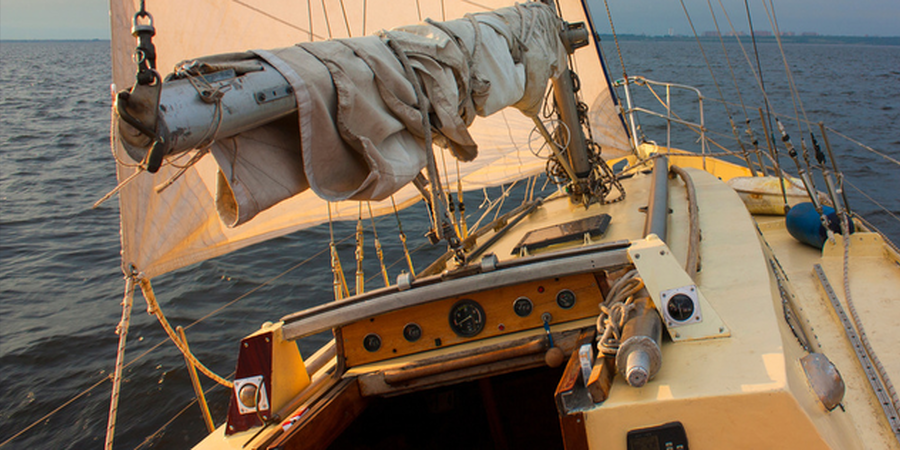Philadelphia, PA - Many industrial fasteners are used in various applications, whether for construction, aeronautics, electronics, agriculture, or transportation. In sailing boats, for instance, clevis pins are used as versatile fasteners for connecting lines, holding parts together, and other attachment purposes.
Clevis Pins In Sailing Boats
Clevis pins are paired with a U-shaped fastener with two prongs called clevis. When used together, the metal pin is inserted through the holes on the prongs of the clevis. Then, the clevis pin is secured at the end by inserting a split or a cotter pin through the hole. All these fastening parts are usually made with stainless steel, though they may also be made with other materials. They also come in various designs, finishes, and sizes, which you can select from using an easy reference chart online.
Clevis fasteners can support heavy loads and are frequently used to hold cargo. They're also ideal for sailing boats because they allow movement while keeping things in place. Because of this capability, clevis fasteners can withstand strong winds, sudden movements, and continuous vibration from the boat engine.
While clevis pins may be small, they play an essential role in keeping a boat strong, secure, and functional. Here are some of the ways clevis pins are used in sailing boats:
1. Clevis Pins Connect The Components Of The Anchor Line
The anchor line is made up of three components: the anchor, the rope, and the metal chain. Clevis pins and fasteners connect these components, making a complete anchor line.
First, the rope is connected to the chain, then the chain is attached to the anchor for added weight and strength. Clevis pins and fasteners are ideal for connecting the three components of the anchor line because of their durability, flexibility, and moisture resistance.
Aside from these features, it's also easy to place, adjust, and remove clevis fasteners, making them ideal for boat sailing.
2. Clevis Pins Connect The Forestay To The Mast
The forestay is a standing rigging that supports the mast of a sailing boat. This line is usually made of stainless steel wire. It runs from the boat's bow up to the mast's tip. The mast and the forestay must be securely attached to withstand strong winds and other sources of movement and pressure. Hence, clevis pins and fasteners are used to connect them.
Aside from supporting the mast, the forestay can also have staysails attached to them. Staysails enhance the sailing power of a boat, which is why forestays need to be durable and securely fastened with clevis pins.
3. Clevis Pins Can Connect The Rudder To The Sternpost
The boat rudder is a steering component found behind the propeller. Its primary purpose is to deflect water flow and keep the boat upright while it's being maneuvered. The rudder commonly has a flat and smooth surface and is made of wood or metal.
The rudder is attached to the sternpost of the boat using clevis pins and nuts. These fastening materials make it possible to operate the rudder using a steering wheel and cable.
4. Clevis Pins Can Be Used As Door Hinges
The flexibility of clevis pins and U-shaped clevis makes it possible for them to serve as door hinges, and they can be used as such for the hatches of sailing boats. The clevis and the pins are attached to the door frame and the door, securing one side while allowing movement for the other.
They're ideal for this purpose since they're durable, flexible, and easy to remove and replace when necessary.
5. Clevis Pins Secure The Keel To The Hull
The keel is a necessary attachment to sailboats as it keeps the water vessel upright and stable. The fin-like part commonly found in the middle of the hull is made of heavy metal and functions as the balancing element of the boat.
Some boats have keels integrated into the hulls. Meanwhile, some are designed as separate parts and therefore need to be secured to the bottom of the watercraft. They can also be maneuvered depending on the direction in which the boat is steered.
For the latter type, clevis pins and fasteners can attach the keel cable to the hull. The line will then support the keel as it's lowered or raised.
Conclusion
The clevis pin and fastener are significantly valuable for attaching and securing various parts and accessories of a sailing boat. It supports functionality, flexibility, and durability while also allowing easy adjustment. While they may seem small and simple, clevis pins can be considered boating essentials you'll need to have handy for a safe and enjoyable sailing experience.
Share This Article on Social Media


